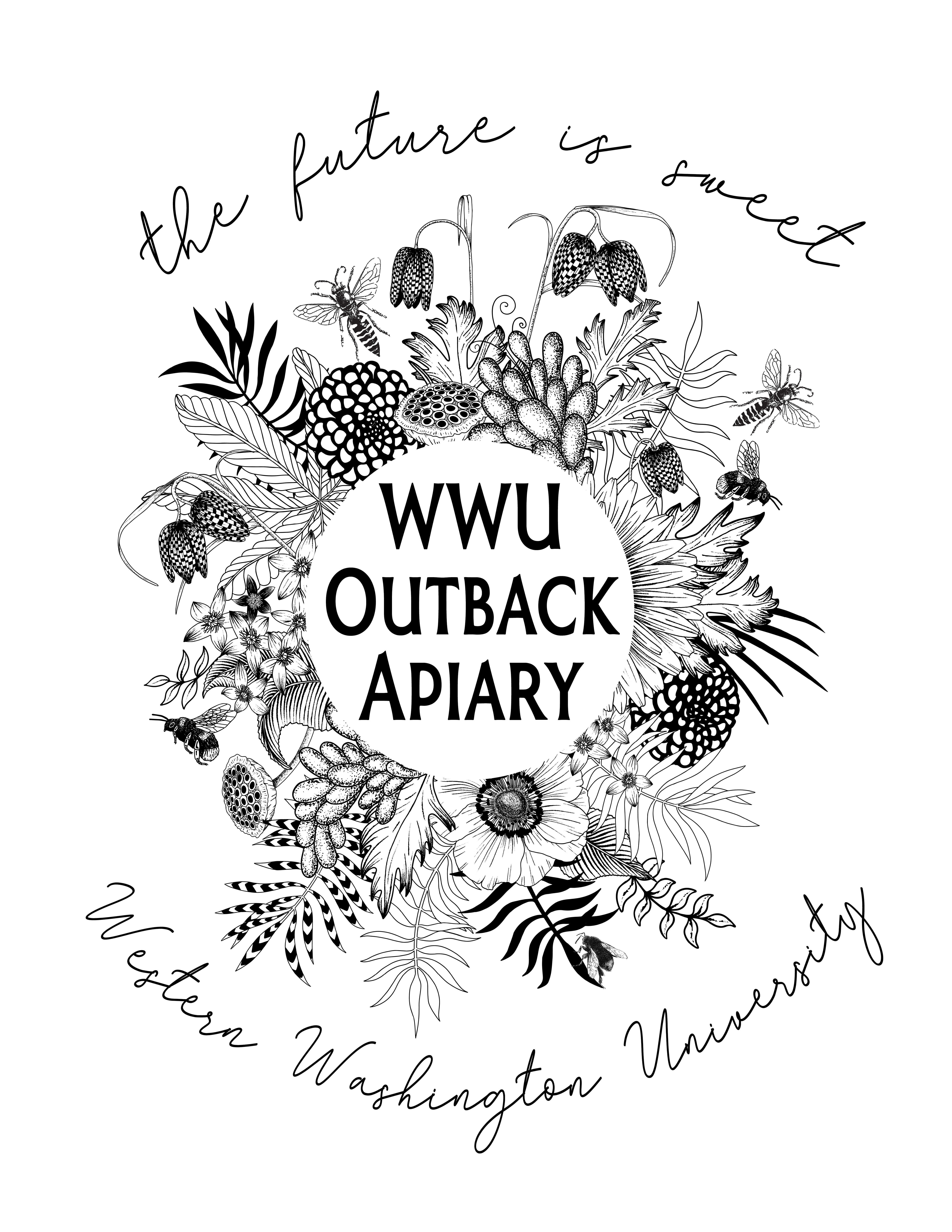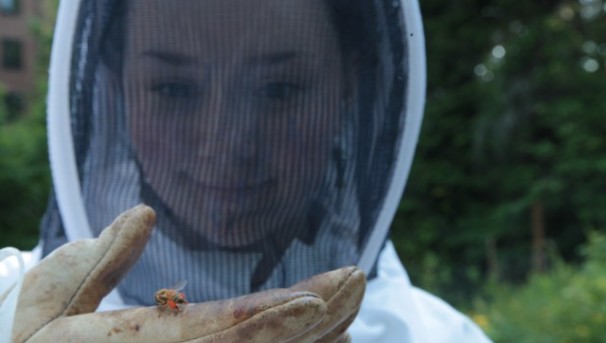Thank You for visiting!
This specific Bee Apiary Fundraiser has ended but you can still support the Bees and students at the WWU Outback farm by visiting their page at www.vikingfunder.com/OutbackFarm
WWU Outback Farm Bee Apiary
About the Outback:
The Outback Farm is a 5-acre organic farm on WWU’s campus that produces fruit, vegetables, eggs, and a wide range of educational opportunities! Our goal is to engage and empower students to grow food for the community with an eye on permaculture, ecosystem restoration, and environmental justice. We share our produce with campus food pantries, classes and volunteers, and the Bellingham Food Bank.
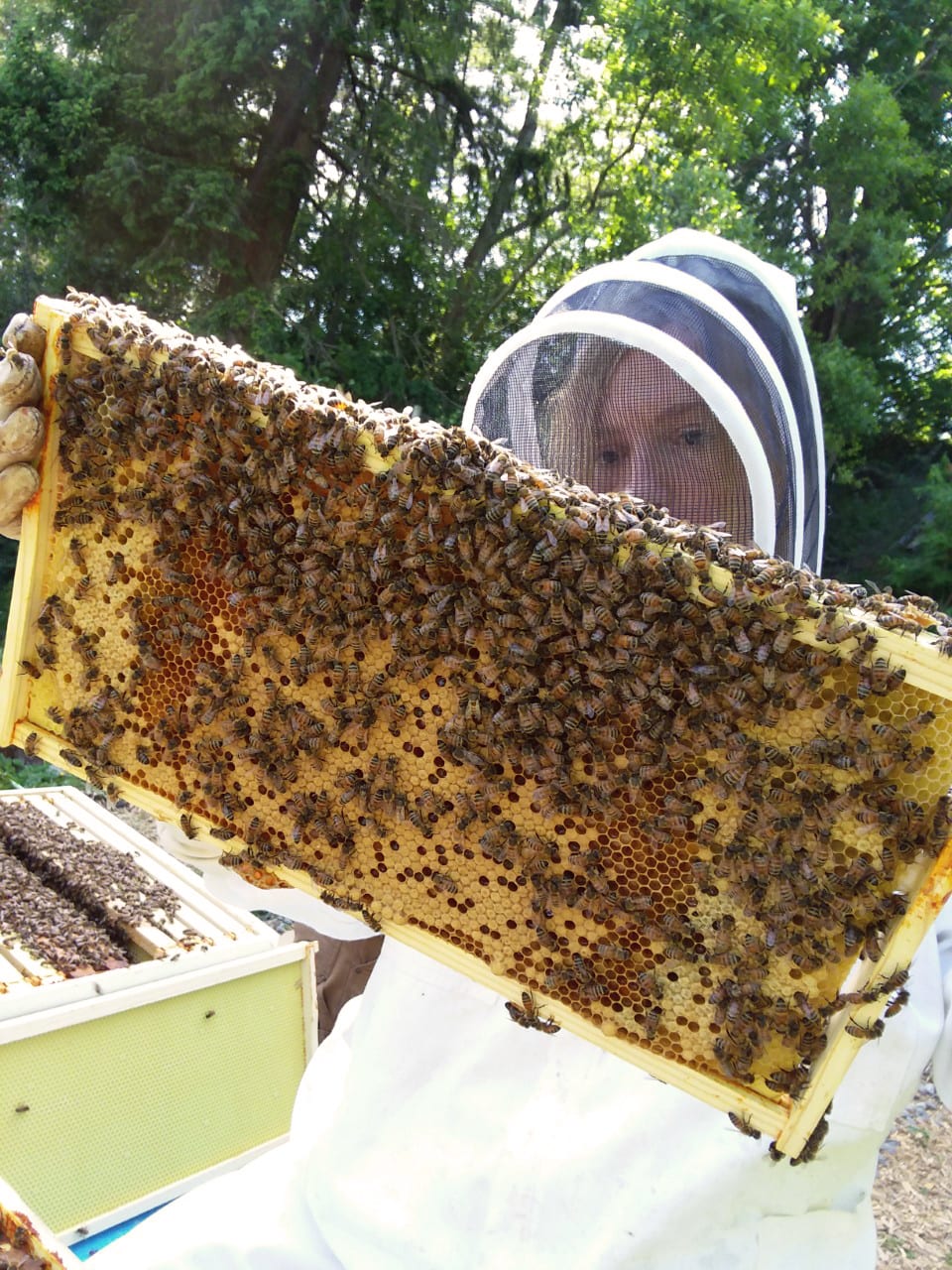
The Outback is a place of reflection, education, advocacy and agriculture. It serves as a classroom, a laboratory, a research facility, and a place for students to relax, connect, and be inspired. Since the late 60’s we’ve been home to cows, pigs, rabbits, chickens, goats, sheep, and – since no farm would be complete without them – bees.

The challenge: bee decline and the environment
You’ve probably seen the headlines about colony collapse disorder and the rapid decline of bees and other pollinator species. This is due to a complex combination of habitat loss, pesticides, and a parasite called the Varroa mite that infects bee hives. That's a huge problem, because about one-third of our diet comes from insect-pollinated plants. Losing honeybees has been called the “single greatest threat to our food supply.”
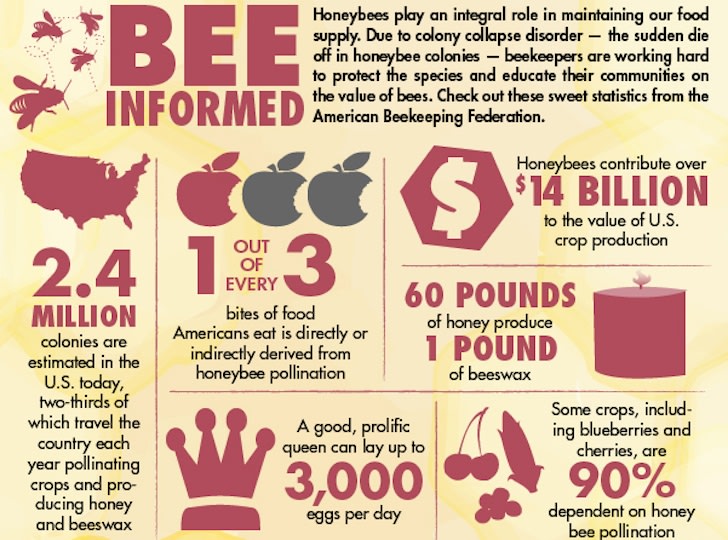
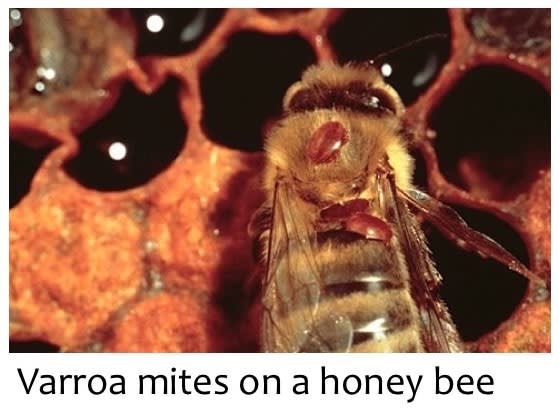
The opportunity:
The good news is, WWU can make a difference! With your help, the Outback apiary can evolve and expand into a world-class facility for teaching beekeeping, entomology, and the importance of pollinators for the environment and for our health. The apiary can inspire and connect many different departments throughout campus. Through surplus honey harvest (most is left for the bees to eat, as nature intended) and queen bee breeding and sales, students will have a unique opportunity to study, create, and manage a sustainable business.
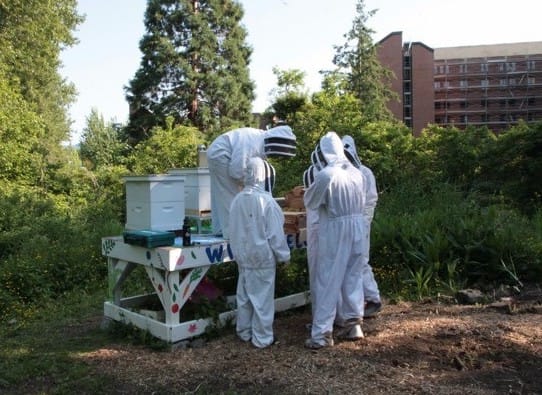
The Outback Farm apiary and can function as the heart of a larger pollinator corridor through Whatcom County. We can serve as a demonstration garden, a center for hands-on learning, and a resource for making Bellingham a bee-friendly city. As a step in that direction, students will investigate “bee friendly campus” certification from the Xerces Society and what it would take for WWU to foster pollinator habitats.

Our plans:
PHASE 1
Our immediate needs are bee suits so our students are safe and confident; additional Langstroth hives and colonies to put in them; and equipment for ongoing care of the bees. This includes what we need to winterize hives. We also want to expand our pollinator habitat by building garden beds and planting flowers and herbs that are good food sources, and create signage so people passing through the farm can learn more about it. We’d like to add special queen bees that bring important genetics to our hives that improve health and sustainability.
5 full bee hives: $2,000
Bees with queens to round out our home hives: $1,200
Specialized queens to introduce important genetics: $1,000
15 high-quality bee suits: $3,000
Weather-proof shed for suits and equipment: $800
Platform tables and small roofs to protect hives: $900
Plants for pollinator gardens: $400
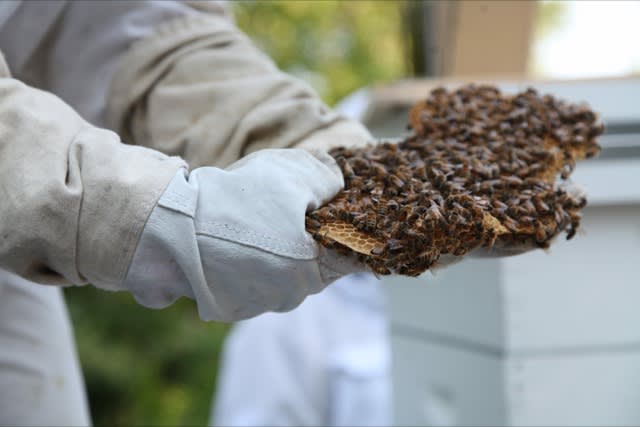
PHASE 2
With additional funding, we’re planning on designing a modern apiary classroom facility that gives WWU students the best chance to learn about pollinators and honey bees while earning their degree. This includes constructing an informational kiosk, benches, and a glass-sided observation hive so that everyone can see what the bees are up to! This opens up learning opportunities for class, workshops, and activities with children and adults alike. We aim to host ecological educators from the community, professors and researchers from our own and other universities, and nonprofit agencies to offer lectures and workshops. The apiary will highlight student-led teaching for peer-to-peer learning. And we’ll engage in outreach to promote a campus-wide connection to pollinators and the ecological responsibility we all share.
Hexagon kiosk containing an observation beehive and panels for information about bees, butterflies, and the importance of pollinators: $2,500
Observation benches: $800
Plant materials, landscaping materials, signs, pathway: $4,000
Bonterra flat-panel observation bee hive: $1,200
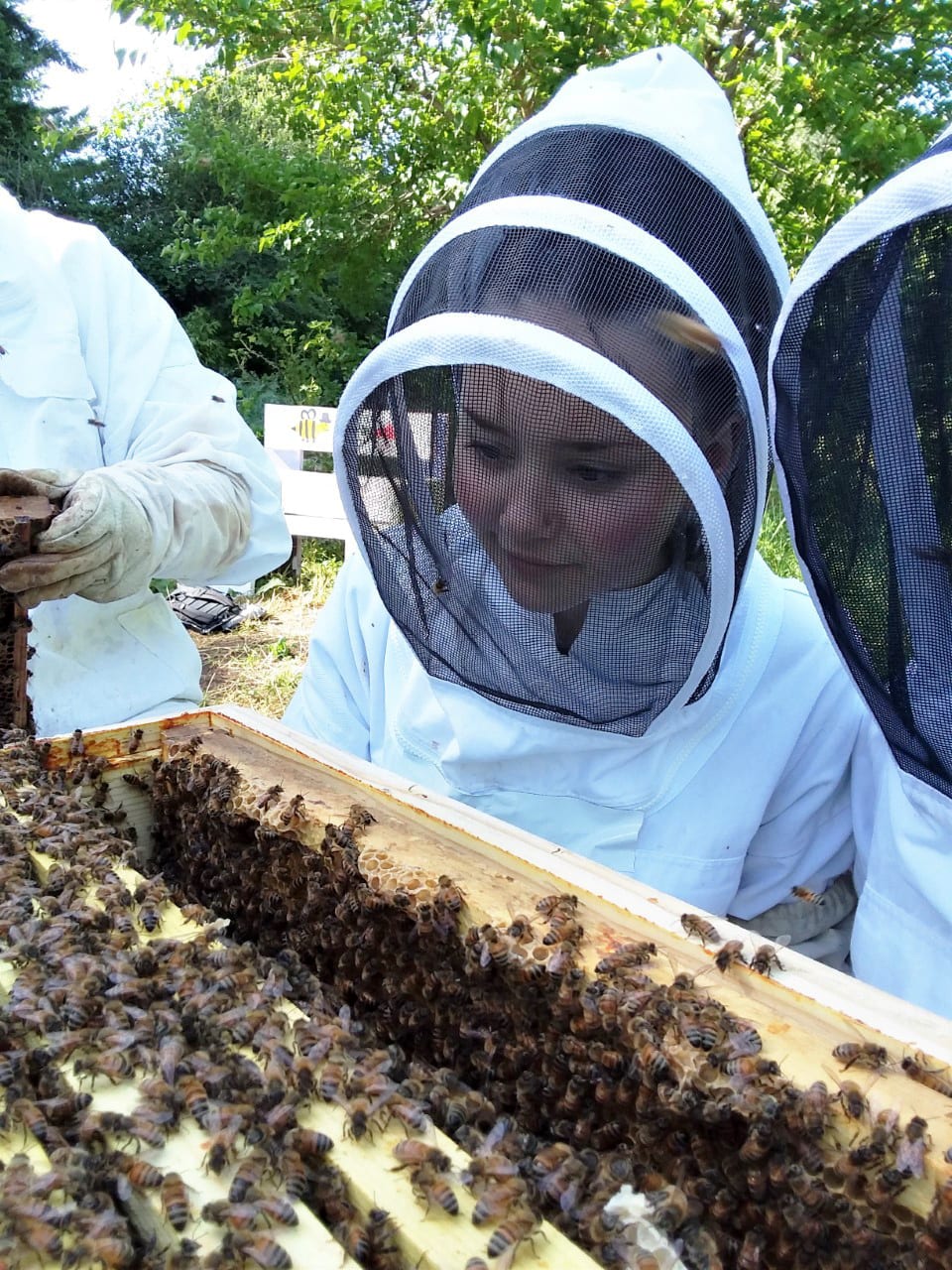
PHASE 3
Our most ambitious goals include creating a queen bee breeding program to combine the genes of bees with mite resistance (VHS traits) with locally-adapted bees that thrive in the Pacific Northwest. This is strategic for the long-term sustainability of the Outback apiary, and it creates an opportunity for students to get hands-on experience not only with beekeeping and genetics but small business management, marketing, and sales.
Queen bee breeding equipment: $3,000
Branding, licensing, and marketing materials: $1,000
Stipends for student educators and visiting experts: $1,000
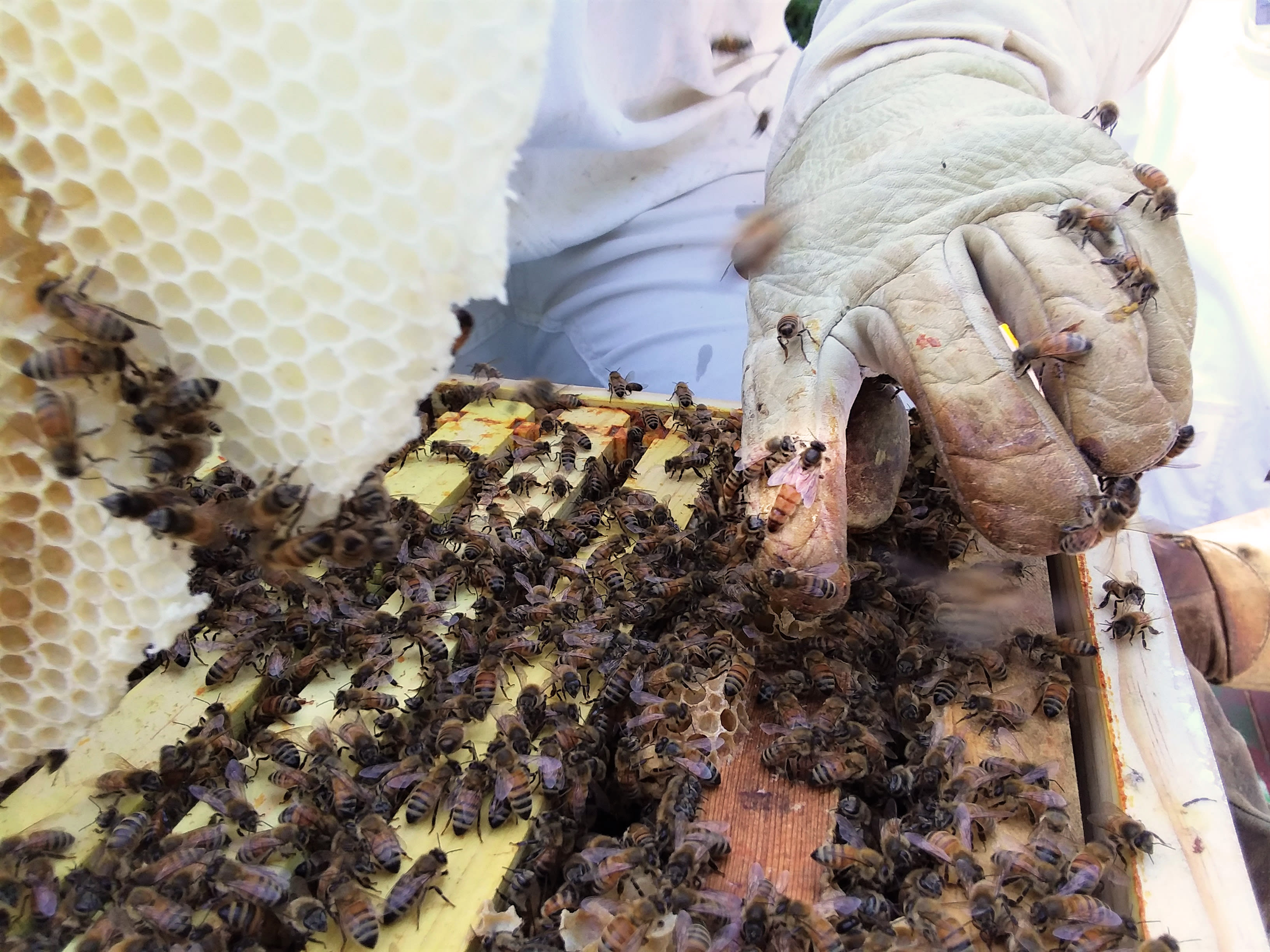
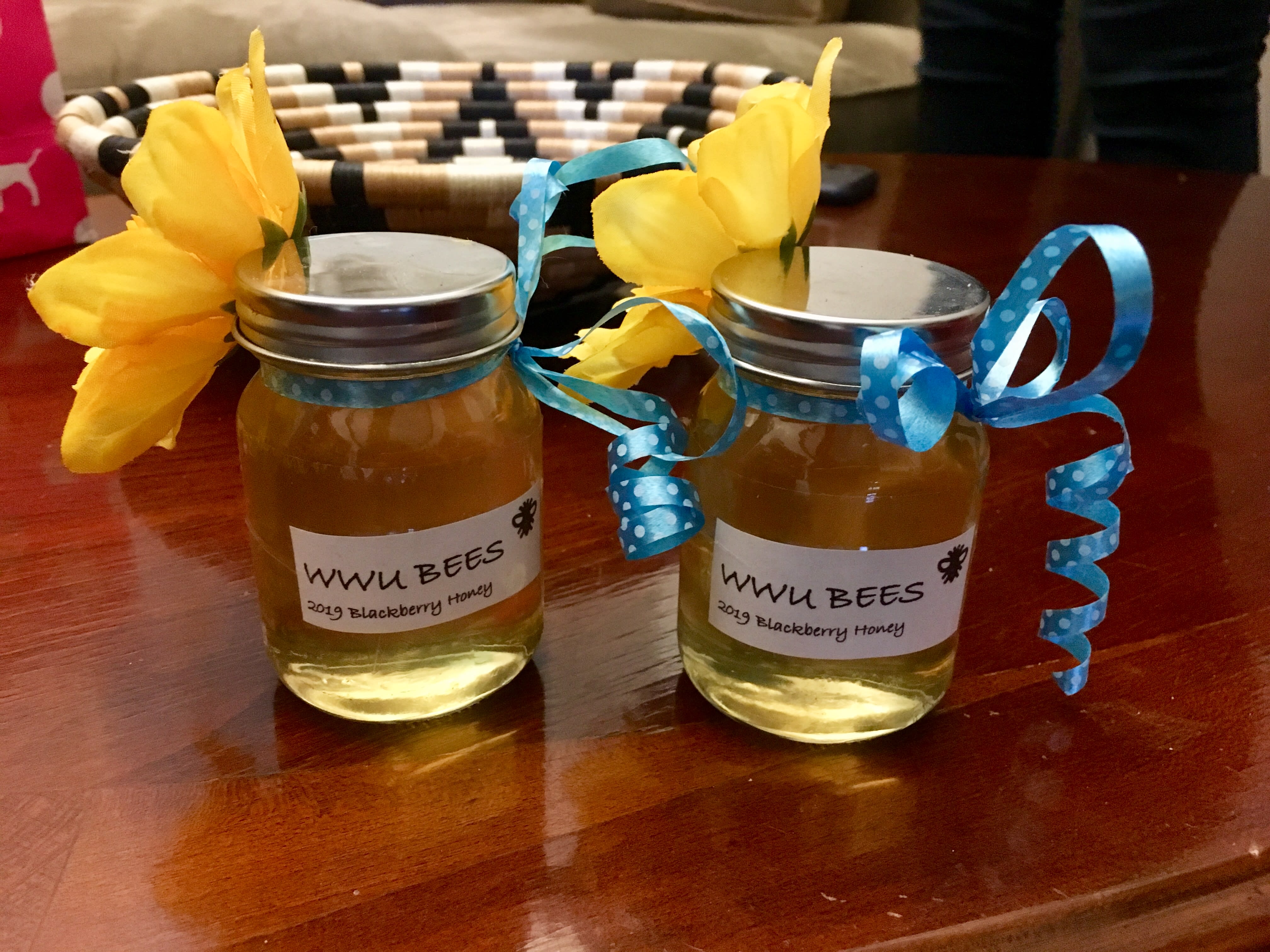
Join us!
By making a donation to the Outback Apiary, you are directly helping us help the bees. You become part of our team as we inspire students to engage with pollinators, the environment, and a future filled with sweetness. With only a dollar or two, you can make a difference. If you’re part of a local business and would like to support the apiary, please contact us for more information about the opportunity and the benefits.
The Outback Farm at WWU is a community resource open for everyone to come visit, and we hope to see you out at the apiary!
